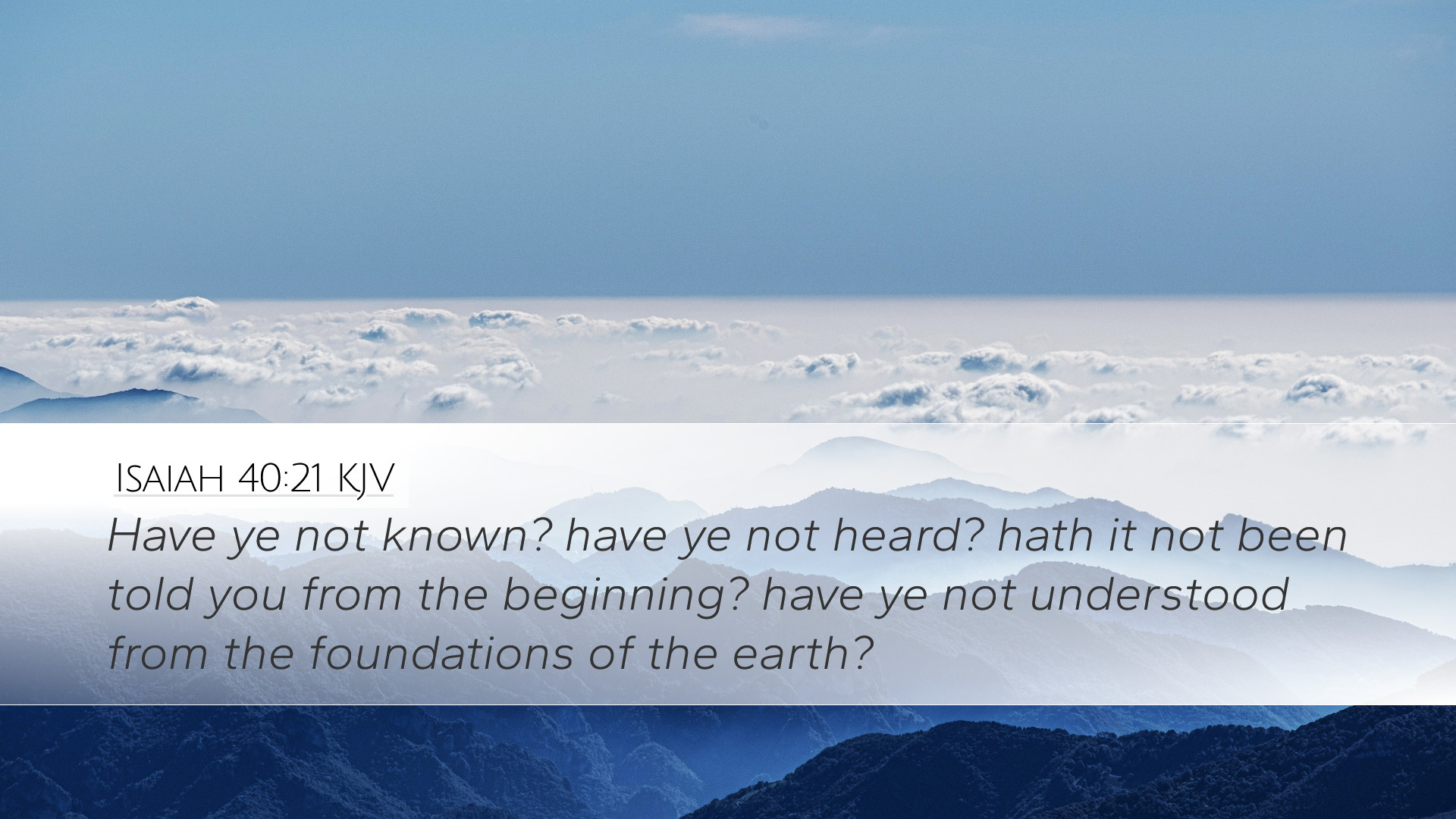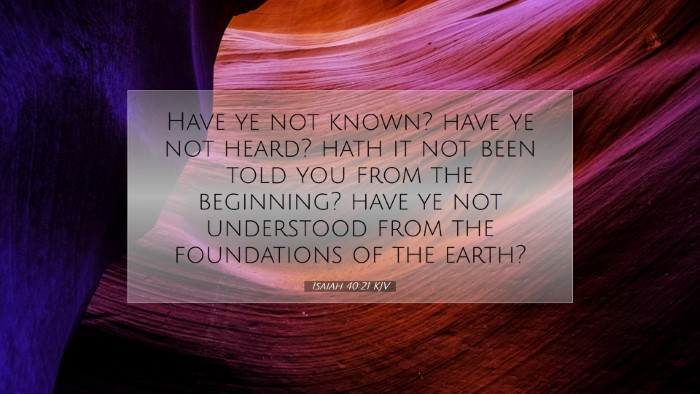Isaiah 40:21 - Commentary Summary
Isaiah 40:21 states: "Have ye not known? have ye not heard? hath it not been told you from the beginning? have ye not understood from the foundations of the earth?" This verse encapsulates a profound inquiry into God’s nature and the understanding of His creation. Below is a synthesis of insights from esteemed commentaries to enhance the theological, pastoral, and scholarly examination of this verse.
Contextual Background
Isaiah 40 marks a pivotal shift in the book of Isaiah, transitioning from themes of judgment to messages of comfort and hope. The context here addresses the Israelites in exile, reassuring them of God’s sovereignty and power amid their troubles.
Examination of Key Themes
-
The Sovereignty of God
Matthew Henry emphasizes that this verse reflects God’s supreme authority over all creation. He notes that the rhetorical questions serve to awaken the hearts of the listeners to the reality of God's omnipotence. This serves as both a reminder and a call to comprehend the divine nature that surpasses all human understanding.
-
Revelation of Knowledge
Albert Barnes points out that the knowledge being referenced is not just abstract but is a continual revelation from God throughout history. From the very beginning, God has made Himself known, and the challenge posed in the verse is whether the people have truly heeded this revelation.
-
Foundations of Creation
Adam Clarke elaborates on the phrase “foundations of the earth,” highlighting the stability and order that God instituted at creation. This not only implies physical stability but also the foundational truths about God’s character that have been established since time immemorial.
Theological Reflections
From a theological perspective, Isaiah 40:21 invites profound contemplation about God’s transcendence and immanence. This duality challenges believers to reconcile the majesty of God with the personal nature of His involvement in human history.
Implications for Pastoral Ministry
-
Encouraging Understanding
Pastors are called to facilitate a deeper understanding of God’s nature among their congregants. This verse serves as a reminder that ignorance of God's attributes and His ways is a spiritual deficiency that can lead to despair and hopelessness.
-
Teaching the Faithfulness of God
The comfort that God offers is rooted in His faithfulness as demonstrated throughout history. Pastoral teaching should reflect on God’s unchanging nature, encouraging the church to trust in Him regardless of circumstances.
Application for Theologians and Scholars
The verse offers a rich field for scholarly inquiry. Theological discourse can explore the implications of God's revelation through history, the nature of His omniscience, and the significance of human response to divine truth. Isaiah 40:21 challenges scholars to investigate how historical understanding of these texts shapes contemporary faith practices.
Conclusion
Isaiah 40:21 is not merely a rhetorical question but a divine call to recognize and understand God's supremacy and the rich revelation of His nature throughout history. As believers and scholars reflect on this verse, they are called to deepen their understanding of God’s enduring truth and the implications of that truth for their lives and ministries. This verse serves as a reminder that the knowledge of God is foundational, deeply interwoven with the fabric of existence itself.


